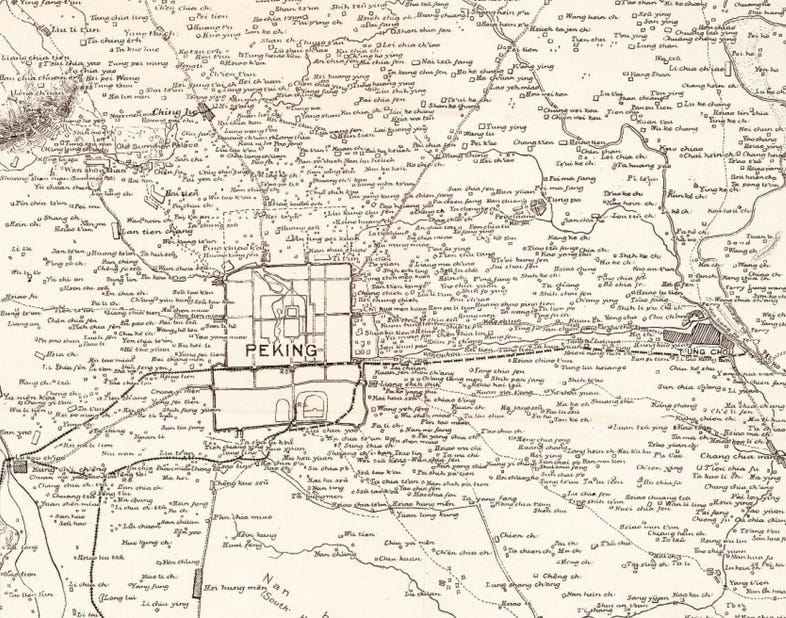Week signals: Rebellion without a cause
Plus: watch points for Italy, China, Southeast Asia, Gabon, Ecuador, and El Salvador.

This week:
IN REVIEW. The view from Beijing, angry young men, the revolutionary dialectic, and broken trust.
UP AHEAD. All roads lead to Rome (except in Indochina), elections in Gabon and Ecuador, Bukele meets with Trump.
Week Signals is the Saturday note for clients of Geopolitical Strategy, also available to GD Professional subscribers on Geopolitical Dispatch. Click here to learn more.
The Week in Review: Thinking outside the Boxer
The week began with Beijing imposing 34% duties on US exports, after Washington did the same. It ended with Beijing imposing tariffs of 125% after levies on its own exports reached 145%. Stocks gyrated. Confidence crashed. Treasury yields and gold prices bounced as signs of de-dollarisation began.
There have been many theories as to why Donald Trump has done what he's done, ranging from grand strategy to gross stupidity. And amid the panic, there have even been some suggestions of a solution too. But with a chaotic trade war against everyone morphing into a US-China battle of wills, it's becoming less relevant to know what Trump is thinking than what Xi Jinping thinks Trump is thinking.
We'll never know, of course. Unlike the US president, China's leader keeps his cards to his chest. But there have been informed guesses, ranging from comparisons with Mao Zedong's Cultural Revolution (1966-1976) – which Xi personally experienced, having been sent down to the countryside after Mao turned against his father and other officials – to the collapse of the Soviet Union under Mikhail Gorbachev (1985-1991), which has been a core Communist Party teaching on what not to do ever since.
In this telling, Trump is exhibiting an irrational fervour to dismantle the state and place his interests and ideologies in conflict with society's. And through it, Trump is sowing the seeds of his own destruction, as well as that of the United States. Thus, better to fight it than to appease it. China, as its officials have liked to say in recent days, has been around for 5,000 years and will be around for 5,000 more.
These ideas are worth considering, but there's perhaps another analogy that Xi, a student of history if nothing else, is pondering, and that's of the Boxer Rebellion (1899-1901). Here, a group of ultranationalist martial arts enthusiasts, the Society of Righteous and Harmonious Fists, rose up in the north to kick out the foreigners who had been raiding China's inheritance and infusing it with alien ideologies, imports, drugs and colonists. In Xi’s view, like today’s America First movement, the Boxers were more motivated by vague grievance than coherent cause, let alone strategy. And like all short-lived revolts, there was destruction without construction. All victim, no vision. All storm, no reform.
Like the MAGA bros and Proud Boys a century later, the so-called “Boxers” were predominantly young working-class


